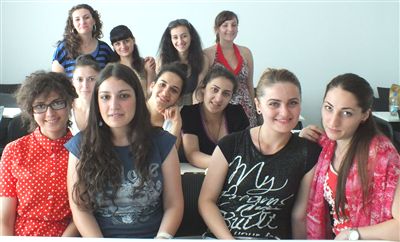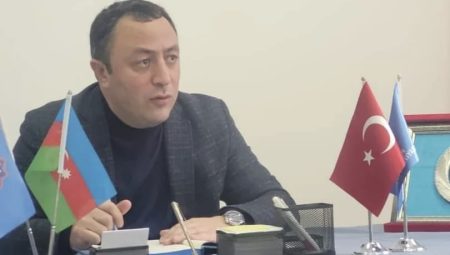Georgian government initiatives, including legislation to criminalize domestic violence, appear to be having a positive effect in protecting women from abuse by spouses and relatives.
Data on domestic violence in Georgia is patchy, and in some cases raises questions. For example, while the Georgian ombudsperson’s office compiles figures for femicide – defined by the World Health Organization as “the intentional murder of women because they are women” – the Georgian Interior Ministry does not. Georgia’s criminal code does not recognize murders of females as a distinct crime.
In the past, as elsewhere in the South Caucasus, Georgian women tended to keep quiet about abuse by spouses, fathers or brothers. But now, to escape domestic violence, they increasingly are heading to four state-run shelters.
The annual number of residents at these shelters – located in the capital, Tbilisi, and the regional towns of Batumi, Gori and Sighnaghi – more than quadrupled from 2010-2015 to 188. Currently, some 108 women and children are living in the facilities.
Tamila Barkalaia, director of the State Fund for the Protection and Assistance of Victims of Human Trafficking, which runs the shelters, expects that number to keep increasing. She added, though, that “for us, it’s not bad news.”
As women’s rights and public services for victims of domestic violence expand, she said, women feel more empowered to resist and report abuse.
In 2015, police registered 901 domestic-violence cases – an 88 percent increase over reported instances in 2014, based on police figures cited by the ombudsperson’s office. In 2014, the latest year for which data is available, the government’s emergency-assistance hotline recorded 9,290 calls related to domestic violence.
Those women who turn to a state-run shelter are eligible to receive psychological counseling, as well as legal and medical aid. They also have access to job counseling.
One 34-year-old mother of two is among those who chose this option. “I believed it is a woman’s obligation to always forgive, but the more one tolerates, the worse things follow,” recounted the woman, who asked only to be identified by her first name, Tiniko. Married at 17, Tiniko’s ex-husband used to threaten her with a knife when jealous of her job, or time spent with female friends, she claimed.
After being hospitalized when her husband allegedly hit her on the head with an iron tea kettle, Tiniko turned to the public defender’s office for help and, last November, found a safe home with her children in Tbilisi’s 27-bed shelter. She will soon leave the facility for a rented apartment.
Fearing the police, her husband has stopped his aggressive behavior, his wife said.
Twenty-six-year-old Kristina, who gave only her first name, also has opted for a new life. She spent nine months at the Tbilisi shelter after her father beat her over an issue related to her boyfriend, and threatened to kill her. “Since my childhood, my parents have interfered in everything – where I should study, who should be my husband,” she sighed.
One year on probation prompted her father to change his behavior, but Kristina has not returned home – the traditional residence of unmarried Georgian women. Instead, she lives in a rented apartment, has two jobs and feels “reborn.”
While women’s rights advocates are encouraged by current trends, many believe that more needs to be done. Advocates were disappointed in early June, when parliament decided not to include femicide in Georgia’s criminal code.
At a committee hearing, the ruling Georgian Dream’s Gedevan Popkhadze, deputy chair of parliament’s Human Rights and Integration Committee, said the “[bill] creates an emotional background as if women are hated by somebody.” Such is not the case in Georgia, he added.
Under legislation implemented four years ago, domestic violence is punishable by up to a year in jail, or public service.
Representatives of the country’s most influential public institution, the Georgian Orthodox Church, say it is also playing a role in addressing domestic violence. Giorgi Zviadadze, rector of the Tbilisi Theological Academy and Seminary, underlined to EurasiaNet.org that the Church supports victims of violence by preaching about peace and understanding among family members. Indeed, families sometimes seek the intervention of parish priests to stop spousal abuse.
But Republican Party MP Tamar Kordzaia, a co-author of the femicide bill, takes a skeptical line on the Church’s potential contributions. Priests preach that men should respect women, but also that women “should be obedient” to their husbands, she noted.
That concept is not unique to Georgia. In neighboring Armenia and Azerbaijan, traditional views remain widespread that women are often to blame for domestic violence. Beatings and other forms of abuse, many still believe, are private, family affairs.
Domestic violence survivor Kristina says keeping silent only leads to unhappiness. “The longer you remain patient, the more impossible will it become to put an end to [the violence],” she said. “[I]f a woman does not resist … it will never end on its own.”
by Maia Edilashvili-Biermann
http://www.eurasianet.org





